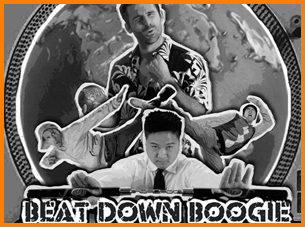 Blog
Blog
Getting a Loan in the US

Personal loans can offer benefits over other types of loans. They can help you borrow at lower interest rates. This allows you to pay off your credit card, car loan, or other debt faster. They also let you save money by paying off the loan in full before it’s due.
Your credit report can indicate your creditworthiness. You might have trouble getting a loan if your credit report shows you’re currently being paid to open accounts. If you don’t have a credit score, a loan can help you get one, and there are services online that offer short-term cash loans which are really helpful with this too!
If you have a credit score, it can be used to help you qualify for other loans, such as a car loan.
How can I get a loan?
Lenders may want to see a few documents. Be sure to bring them with you to the application.
Your:
U.S. Passport or other government-issued identification.
A copy of your most recent employment record.
A current utility bill, bank statement, paycheck stub, government check, or other document that proves your income and expense account. Proof of the household expenses such as rent, mortgage, car payments, or college tuition. A credit report with the name and address of your creditor(s) or account(s) with the three most recent months of all debt you’re current with. A copy of a utility bill, bank statement, paycheck stub, government check, or other document that proves your income and expenses account. A current utility bill, bank statement, paycheck stub, government check, or other document that proves your income and expenses account. You can include a photograph and/or copy of a utility bill, bank statement, paycheck stub, government check, or other document you are current with.
What’s an “active” or “active” status?
Your “active” status means that you’ve actually paid or agreed to pay all of your debts. If you pay on time, your credit score goes up, but if you go over-indebted, the score goes down. Your credit score is your payment history minus the total number of accounts that have been paid off or in collection, and it’s a crucial component in determining your creditworthiness.
Your “active” status means that you’ve actually paid or agreed to pay all of your debts. If you pay on time, your credit score goes up, but if you go over-indebted, the score goes down. Your credit score is your payment history minus the total number of times you defaulted on a debt.
Credit Karma uses the FICO score as its core indicator. It then takes into account information from the three major credit reporting agencies: TransUnion, Equifax and Experian. The website uses this information to calculate your credit score.
How does your score compare to other people’s?
One of the best ways to look at your credit score is by looking at your own credit report. That’s the easiest way to see how you compare to the credit score of other people in your household. If you don’t have a credit score or if your score is too high, a number of lenders may refuse to consider you for a mortgage or credit card. You can get a copy of your credit report from each of the three nationwide credit bureaus, but it can take some time. Once you have it, you may want to review it on a regular basis, and then check your score from time to time.






